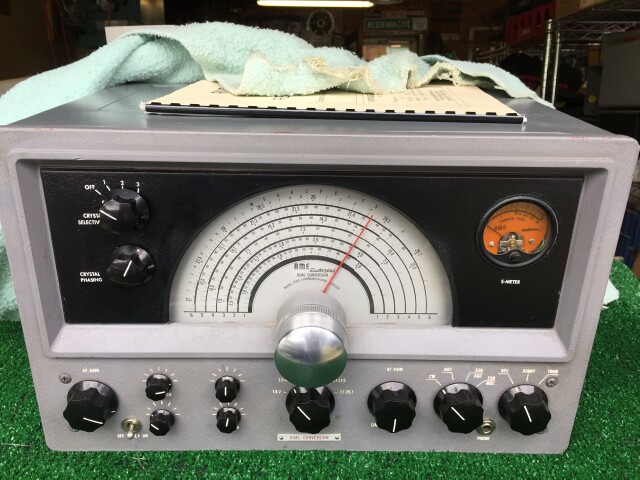How difficult it was:
Back then, (65ish) you started out as "Novice" class, and had to use only CW (Morse Code) and got a sliver of the 80, the 40, and the 15 meter bands. And you could use FM on 2 meters, don't remember what if anything else.
You HAD to use crystal control at the transmitter, and as broke as most of use were, this meant 1 or "MAYBE" two crystals. Mine, I remember, was 3725Kcs. My buddy RIP was on 3715.
What you did was, you listened around your crystal frequency and hoped nobody else was on top of you. You either listened "up and down" to band for someone else calling "CQ" or you called. Then you tuned the receiver up and down listening for you call.
Someone would call you, and since they were likely not on your frequency, they knew you had to tune for them. So they would call A LOT, maybe send your call 6 or more times, or 10. Then sign their call a few times, and maybe repeat the string, shorter. Then you would call them and hopefully, you two would have a 'QSO.'
I did not have much of a station back then to start. My very first receiver was a complete joke, a Hallicrafters S-38
This insult of a radio had BIG problems. First and worst, it was an "AC-DC" or transformerless set. The filaments of the tubes were wired in series across the 110V line, like a cheap kitchen radio. It was dangerous because of this. Also it had low gain, and no RF or IF gain control. On the off chance that it overloaded, there was no way to control the gain, so the BFO needed for CW (Morse) reception would cause bad distortion. Junk
My next set came from a local guy, a Heatkit AR-3.
These were in many ways similar to the Hallicrafters. The improvements were that it was transformer powered, so safer electrically, and had an IF gain control, so you could receiver CW and even SSB (single sideband). But it was still unstable at higher frequencies, and basically a "bored and stroked" kitchen radio
Next, I bought an RME 4350. Stood for "Radio Manufacturing Engineers" and was part of the Electro-Voice microphone outfit. You could buy these cheap because the ball reduction dial mechanism failed on them. You bought an aftermarket ball reduction and modified/ installed that. They were a "hot" receiver, not bad. I paid 50 bucks for one........mail order......from World Radio Labs
By the time I had my "General" class license, the draft was bangin' at my door. I really fooled them........joined the Navy for six years!!!!


















